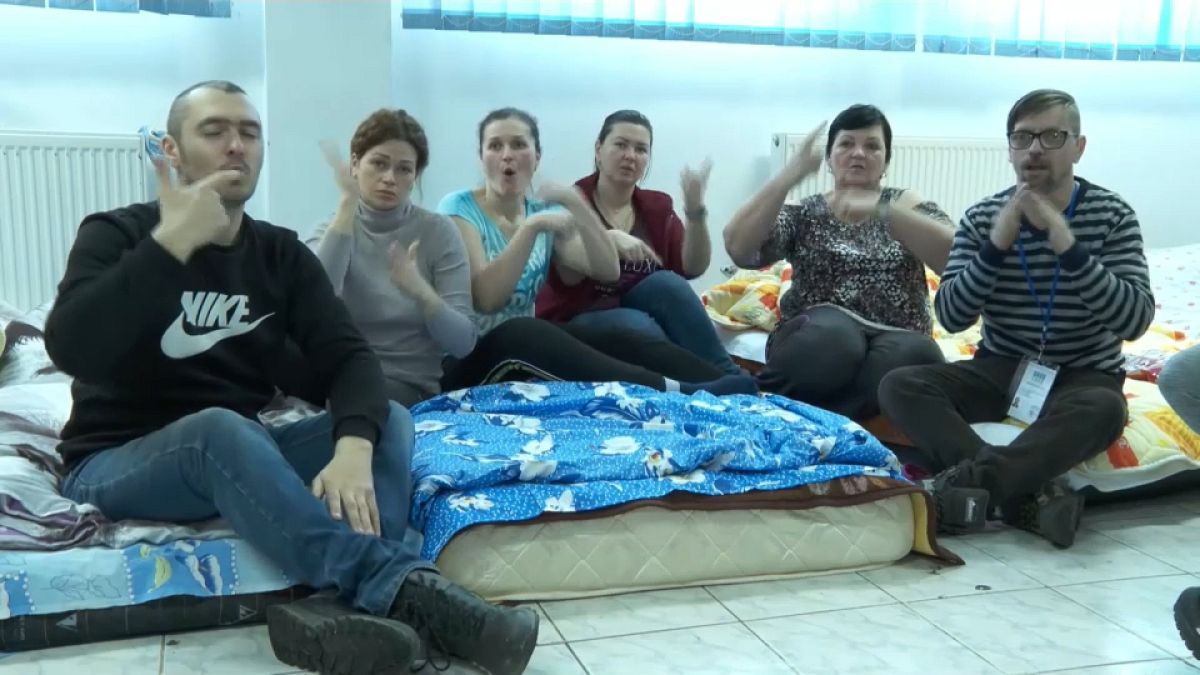As the war rages on, deaf Ukrainian refugees find shelter and support at Romania's border.
As the war in Ukraine rages on, these Ukrainian refugees have found safety in a shelter in Romania. While they may not hear the war, they are living it.
Euronews Romania discovered entire communities of hearing-impaired Ukrainians that fled the war and entered Romania via the Siret border point. For them, the danger came unannounced, without sirens, without the sound of explosions.
At the border, Romanian volunteers, some deaf themselves, are working tirelessly to help them.
At first, communication is difficult, as both Romanian and Ukrainian sign language are based on two different alphabets, one Cyrillic and one Latin. All parties rely on gesturing until they can communicate more easily.
Volunteers hosted 13 deaf refugees, including children. They registered their information in a file, as they do with all who come to them for help, and worked endlessly to find them shelters either in hotels or apartments.
For the refugees, the goal is to get as far away as possible from the border, Daniel Hliban, President of the National Association of the Deaf in Botoșani told Euronews.
“Most of them do not want to stay near the borders, they feel too close to the conflict area and they are afraid. We don’t know how to feel about it ourselves. But we're not leaving, we're staying here," Hliban said.
Tamara left Ukraine after the first explosions.
She met volunteers at customs in Siret and took shelter in Botoșani. She dreams of reaching Prague in the Czech Republic.
Nearly 1000 hearing-impaired Ukrainians have been supported by the Romanian National Association of the Deaf.
The war has displaced over three million Ukrainians in just three weeks.
